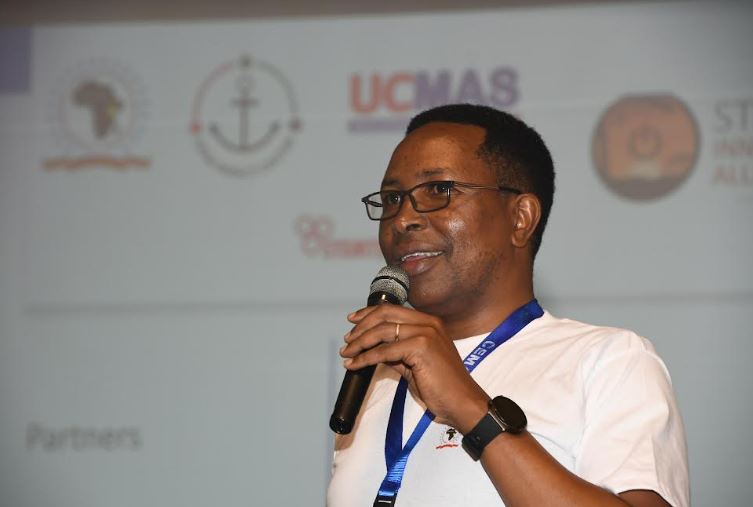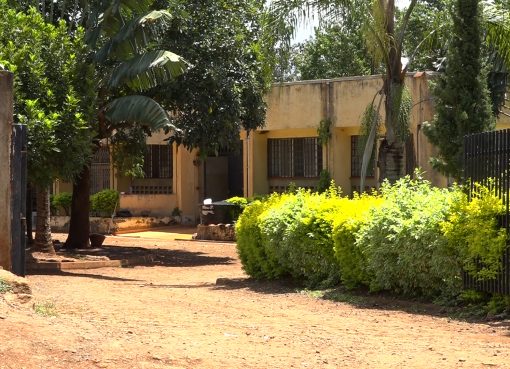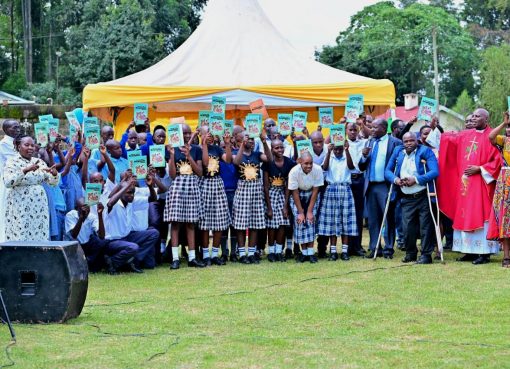There is need for learning institutions to incorporate problem solvers into schools for the purpose of training young learners on how to use their brains to solve their life problems.
The Advisor to the Director on Africa Initiatives for the CEMC-University of Waterloo in Canada, Wesley Korir, observed that Kenya is endowed with resources but has a shortage of problem solvers who can use the available resources to solve problems.
“We must start training problem solvers in our schools at a young age so that their brains can look at things in a different way,” he said.
Korir, a former Member of Parliament for Cherangany Constituency and a Boston Marathon Champion, was speaking during the opening of the 4th STEM Boot Camp Coding and Robotics held at the Centre for Mathematics, Science, and Technology Education in Africa (CEMASTEA) in Karen, Nairobi.
The one-week classes, which comprise learners from grade three to form four themed ‘Igniting the Future: Inspire, Imagine, and Innovate’, are aimed at equipping learners with creative coding, mobile app development, graphic design, robotics skills, and practical exposure to math and science disciplines.
The Centre organises Science, Technology, Engineering, and Mathematics (STEM) Bootcamps each year during the holidays, where they have various cohorts that run for one week each.
Korir said he was working with CEMASTEA using the Science, Technology, Engineering and Mathematics to get problem solvers who will be the country’s future leaders.
He said the current exam system only makes students concentrate on memorising formulas for the purpose of passing exams, and he urged those at the camp to train themselves to be problem solvers by using the skills they will acquire in robotics, coding, and programming.
“You can be successful by looking at everything from a different perspective and solving the problem from a different perspective. The best way to become a billionaire is to solve someone’s problem,” he advised.
Korir added, “We need you; your generation needs you; this country needs you. I hope one day all of you will help this country solve different problems.”
The former MP mentioned that education and school are not about passing exams or getting a job, but about training and equipping learners with skills they can use to solve their life problems.
He gave the example of Mark Zuckerberg, the founder of Facebook, as a person who became a billionaire in the world by thinking and using his brains.
“During the COVID pandemic, when everybody was at home whining and complaining, somebody sat down and started Zoom, and right now everybody is using his Zoom, and he is now a billionaire,” said Korir.
In his remarks, the Deputy Coordinator of the Stem Programme at CEMASTEA, Mr. Martin Mungai, said the introduction of coding in schools by the Ministry of Education in grade four has made the Centre expose the young learners from grade three and above to practical exposure to the math and science disciplines.
He said the exposure will enable them to know how to solve problems besides gaining knowledge, adding that coding is central to the competency-based curriculum.
“We believe that through the STEM bootcamps we are nurturing young minds talent and planting a seed; this will curb the shortage of manpower in our country,” he added.
Mungai announced that CEMASTEA has a team in place that will represent the county in the forthcoming International Mathematics Olympiad (IMO) at Bath University in the United Kingdom and the Pan African Mathematics Olympiad (PAMO) competitions in the year 2024.
The skills being developed by learners attending the CEMASTEA, STEM Bootcamps, which include communication, collaboration, and adoptability, are aimed at making them valuable on the job market in the future and making the country and world a better place.
CEMASTEA is a public institution under the Ministry of Education established in 2004 whose mandate is to Strengthen Mathematics and Science Education in both primary and secondary schools.
By Bernadette Khaduli




